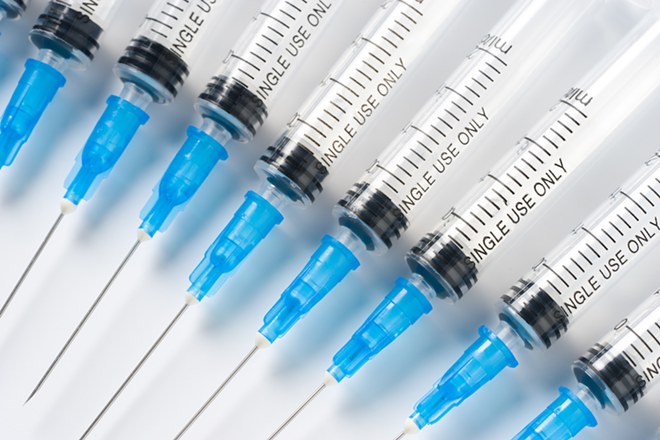Gov. Ron DeSantis signed a bill late Wednesday night that will allow residents across Florida access to syringe exchange programs.
The Infectious Disease Elimination Programs bill was approved across bipartisan lines, allowing counties the opportunity to authorize needle-exchange services locally.
According to a news release from the Drug Policy Alliance, the programs are modeled after IDEA Exchange in Miami, a similar program that was authorized in 2016 and has since seen success. "Florida is showing tremendous leadership by allowing the expansion of syringe exchange programs, which have proven to be highly effective health interventions," says Maria Sanchez-Moreno, executive director of the DPA, in the release. "Particularly at a time of skyrocketing overdose rates, it is critical that policymakers adopt compassionate and evidence-based policies to protect the health of people who use drugs and other others."
The bill's passage and subsequent gubernatorial endorsement means Florida is now among only 22 jurisdictions nationwide that have legally authorized syringe exchange programs, the release says.
In 2017, the Orlando metropolitan area jumped to second place among U.S. cities for the highest rate of new HIV diagnoses, with 718 new cases, according to a November 2018 report from the federal Centers for Disease Control and Prevention. Prior to that, in 2015, the Orlando metro area ranked sixth behind other southern U.S. cities with 25.7 new HIV cases per 100,000 people, for a total of 614 new diagnoses.
But by 2017, Central Florida's rate had increased to 28.6 new HIV diagnoses per 100,000 people, surpassing other major cities with prominent HIV rates, like Atlanta, New Orleans and Baton Rouge.
The only rate higher in Florida than the Orlando metro area came from the Miami-Fort Lauderdale-West Palm Beach metro area, which had a rate of 35.3 new HIV cases per 100,000 people – a total of 2,177 new diagnoses. "Lives will be saved. HIV infections will be prevented," says Hansel Tookes, who leads the IDEA Exchange and is an assistant professor in the Department of Medicine at the University of Miami. "People who use drugs will be treated with compassion and have access to the help they need."
Follow @cl_tampabay on Twitter to get the most up-to-date news + views. Subscribe to our newsletter, too.


